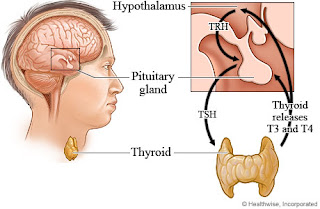FOOD ADULTERATION
For
good health we must have good food. By good food we mean nutritionally
balanced, wholesome and safe food. Adulterated food is impure, unsafe, or unwholesome food.
What is adulteration?
Adulteration
can be defined as the addition/subtraction/substitution or abstraction of
substances which adversely affect the quality of food products.
Prevention of food adulteration
act,1954
To
check the growing tendency of
adulteration, Government of India had introduced “Prevention of Food
Adulteration act” in 1954.FSSAI – In 2006 the food safety and standard
authority of India has been established under food safety and standard act
2006 which consolidates various acts and
food related issues in various ministries and departments.
Common
adulterants present in food:
Turmeric,
dals and pulses:
Adulterant: metanil yellow and kesari dal
Health
hazard: lathyrism, cancer, anemia, degeneration of reproductive organs, mental
retardation.
Green chilies, peas and other vegetables:
Adulterant:
malachite green and argemone seeds
Health
hazard: edema, liver enlargement, loss of eye sight and carcinogenic if
consumed for a long time.
Milk
and milk products:
Adulterant:
starch and water
Health
hazards: stomach disorders
Fats
and oils:
Adulterants:
low quality less filtered oils and mineral oils
Health
hazards: epidemic dropsy, blindness and stomach disorders.
Ice
cream:
Adulterant:
harmful colours, pepperonil and ethyl acetate
Health
hazard: Diseases affecting lungs, kidney and heart.
Coffee
powder:
Adulterant:
tamarind seeds
Health
hazard: stomach disorders and severe joint pain
Criteria
for selection of food:
Selection
of wholesome and non adulterated food is essential. Label declaration on packed food is very important
for knowing the ingredients. It also helps in checking the freshness of food.
The
consumer should avoid purchasing food from unhygienic places and food being
prepared under unhygienic conditions.
Its
best to buy products with standardized marks.
MARIYAM FATIMA
(B.Sc. Nutrition)





Comments
Post a Comment